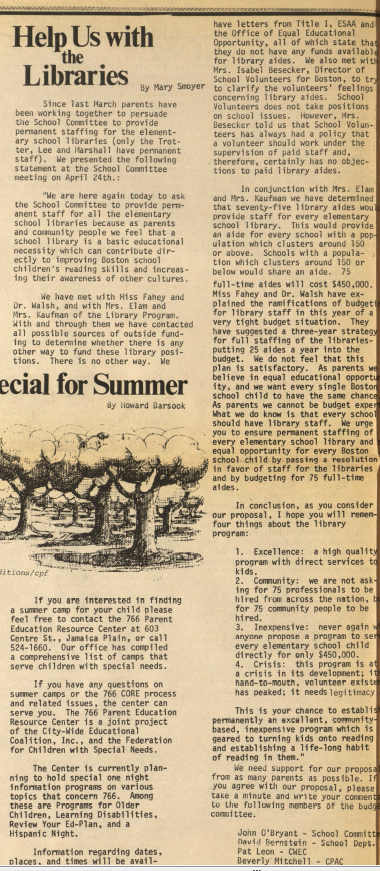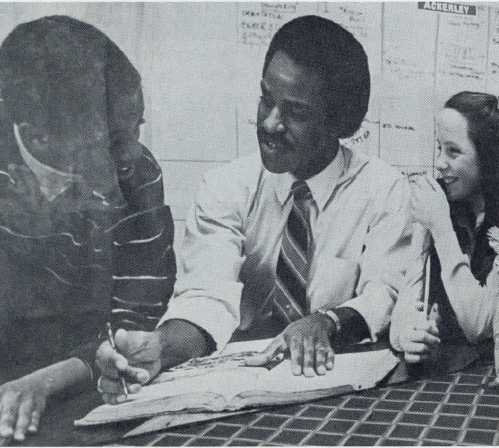
This article from 1974 explains the need for partners to help support public schools.
In the past year, I have been given an opportunity by AmeriCorps*VISTA, Boston Cares, and Boston Partners in Education to perform a unique role that is part research, part writing and part promotional. Boston Partners is a non-profit organization that focuses on providing students with academic mentors who can help them achieve success in the Boston Public Schools.
To celebrate their upcoming 50th anniversary, Boston Partners wanted to collect 50 stories from their history and present them throughout the coming year to demonstrate the impact that they have had on Boston’s educational scene. In order to do that, I had to first find out what the organization had been known for in the past. In a way, it almost felt like a return to academia, scouring the library for names, quotes, and sources – skills I had obtained but had not yet found use for in a professional setting.
What we revealed was a rich history that taught me a lot not only about the history of this organization, but the fascinating and controversial history of Boston public education, of which I had no previous exposure. As a Connecticut native, I knew very little about the court-ordered integration in Boston and the long-term effects it has had on this city. Through newspaper articles, books, and interviews, I have learned about the shocking things that happen when a city built on divisions is suddenly forced to confront the inequities inherent in that system.
But of greater importance, I have learned much about the people who sought to provide a better education in the midst of that turmoil, and gave much in terms of their time, money, and effort to ensure those goals were achieved. While many of these efforts were well-documented and applauded at the time, the prevailing air of disappointment and scars of the era have obscured much of this great work.
This billboard from the 1980’s promoted our academic mentoring services. The mentor pictured here, Michael Munn, still gets recognized today!
As part of my project, I have been given the opportunity to bring to light the level of leadership demonstrated by Boston Partners and their volunteers for the past 50 years in the form of fascinating programs and partnerships that many in the organization today did not even know existed.
Like busing, these people and programs have also left their mark on the city, connecting resources to students in ways that are commonplace now, but at the time were innovative and challenging to the status quo.
I took this position for personal interests, jumping at the chance to use my creative skills in a professional manner. What I’ve gained from this experience, thus far, is a deeper understanding of what happens when the public is confronted with the reality of its fractured society. While many may point to the ugliness of Boston public education in the mid-1970’s, I have instead gotten to see what was inspiring about the community that responded to the chaos. I am deeply grateful to have been given the responsibility of telling this organization’s fascinating story, and I am inspired by the optimism and determination of its staff and volunteers.

